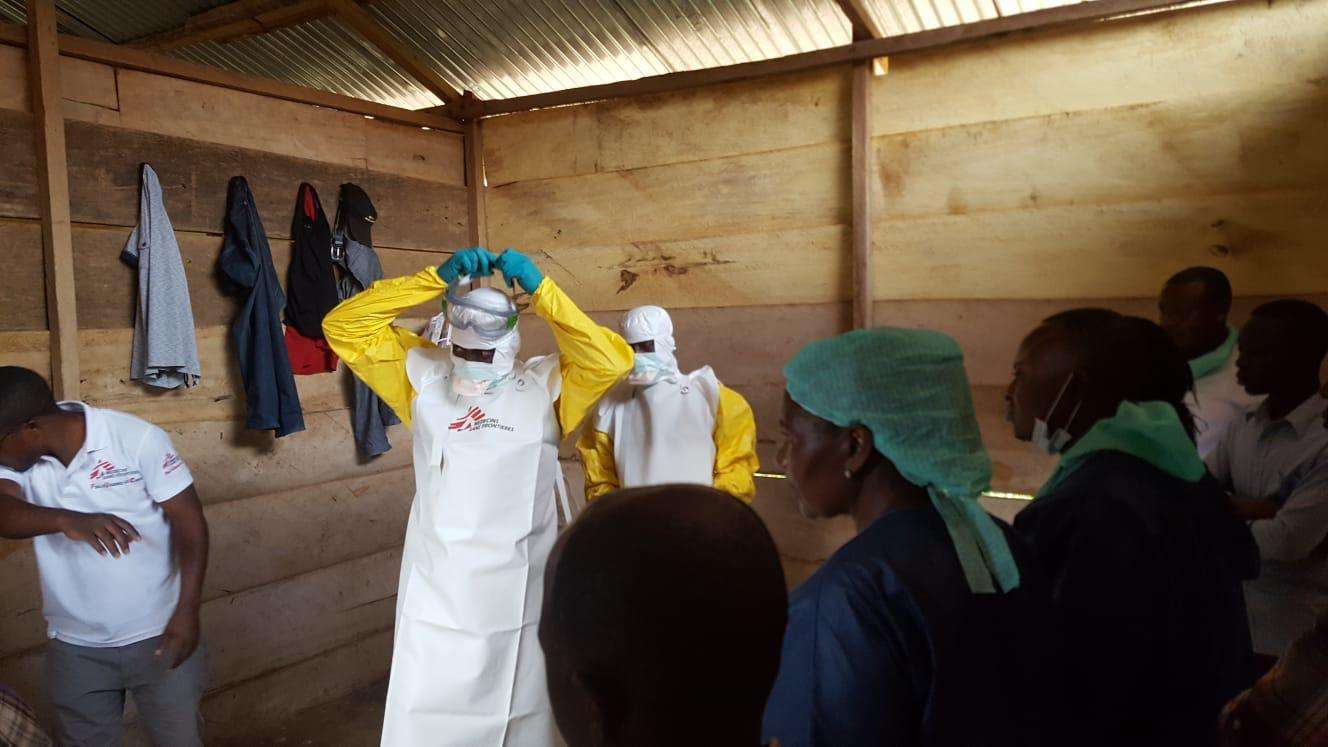The tenth Ebola outbreak in the Democratic Republic of Congo was declared on August 1 in North Kivu, a province in the north-eastern part of the country. So far, 74 cases and 34 deaths have been reported by the health authorities.
Doctors Without Borders/Médecins Sans Frontières (MSF) teams are intervening within the framework of the Ministry of Health’s response plan. MSF has set up a treatment unit in the town of Mangina, the outbreak’s epicenter, with 30 beds inside isolation tents. Another isolation unit has been installed in Beni, a city of 400,000 inhabitants, a 45-minute drive away.
MSF teams are also providing training to surrounding health centers on infection prevention and control to ensure health systems remain functional and care for other patients maintained.
“There are several challenges we have to face” says Gwenola Seroux, MSF emergency cell manager. “The first one, of course, is to limit the spreading of the epidemic and this requires protection of health workers and health care facilities. Vaccination, which the Ministry of Health is beginning to provide, will be another critical part of this effort.”
This region has also long been characterized by violence. “It is the first time we face an Ebola outbreak response in an area of conflict” says Seroux. “This is going to make the response all the more difficult, especially in terms of limiting the spreading of the disease in areas difficult to access. Our ability to move on the ground is going to be limited.”
The area is also very close to the border with Uganda and the authorities in Kampala have called for their citizens to be on high alert. MSF teams on the Ugandan side of the border have been equally reactive and are collaborating with national authorities in case an intervention is called for.




